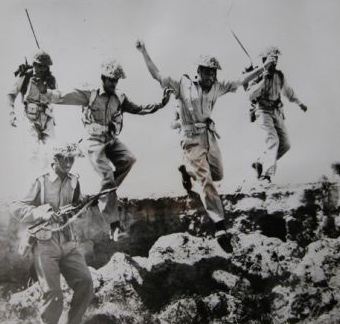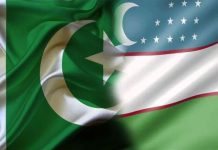Reflecting on important attributes of the Indo-Pak War of 1965, certainly strengthens our ability to contemplate future challenges. The war marked the first full-scale conflict between India and Pakistan. As per the famous dictum, War, is an extension of national policy, only by other means. While narratives regarding the outcomes of 1965 war is blurred, this article aims to shed light on lesser-known facets. Positive mental attitude inspires us to try finding the goodness in subjects, while recognizing inadequacies to improve upon. Indian armed forces initiated this war with a funny dream, in that, they planned taking evening coffee and dinner in Lahore Gymkhana, that was not to be fulfilled.
The war of 1965 was fought by the entire nation spiritually infused with divine aid, that still resonates in the minds of the people. This incorporeal aspect, while inherently vague in war planning, played a crucial role. An element of strong civil-military relationship based on national conviction is essential to comprehensive war strategy. Currently, the gap between public and governing body is not as it was in 1965, which needs to be worked upon. The need of time is to reconcile within the various segments of our society to become a formidable nation.
Pakistan’s strategy during this war was centered on preemption. Although this policy was employed by land forces in terms of early offensives, but Pakistan Air Force (PAF) had formulated a wide-ranging preemptive air strategy. This strategic approach enabled PAF to achieve a degree of air superiority in the desired sectors, which significantly tilted the war’s outcome in our favor. Even in a feeble state of inter-services coordination, the PAF conducted excellent tactical operations that aptly supported the land forces. The PAF’s preemptive air strategy was globally appreciated and even influenced the Israel Defense Forces during the Arab-Israel wars.
Shortly before this war Air Marshal Nur Khan had assumed leadership of the PAF from Air Marshal Asghar Khan, the first Pakistani Air Chief after a lineage of Air Chiefs from the Royal Air Force. Notably, Nur Khan’s leadership extended beyond the PAF; he led Pakistan International Airlines to make it the world leading airline and same way he led Pakistan Hockey Team that made us proud. His influence elevated the PAF’s performance and professionalism, earning him the honor of a true strategic leader duly acknowledged by the old soldiers’ group. Nur Khan’s greatness was attested when Gen Ezer Weizman, ex-Commander of Israeli Air Force and IDF, commented that “thanks God that Nur Khan did not belong to Arab-World”.
The world was hugely impressed by the professional acumen, that PAF displayed and the Pakistani Armed Forces showed in general. Despite numerical disadvantage, Pakistan sustained an edge over India, according to final war results. The professionalism exhibited by the Pakistan armed forces in general and PAF in particular, actually enhanced our conventional deterrence, instilling lasting fear in adversaries’ hearts. Assurance of this national security element was recently refreshed by the PAF in February 2019 in Pulwama episode, perpetuating its established legacy.
Fighting a war requires political and diplomatic resolution, highlighting the importance of knowing adversaries’ intentions during times of peace. Vigilance against the potential traitors and conspirators within our society is crucial. Strengthening policies and legal frameworks against hybrid attacks is imperative. The evolving nature of warfare necessitates maintaining a degree of air superiority, placing the PAF as a linchpin in any future conflict. Upholding Quaid-e-Azam’s vision, the PAF’s commitment to excellence remains unwavering. Our learnings from war of 1965 may be intelligently applied in present era, after due incorporation of higher technological advantage. Currently, the world is more transparent than ever, all vulnerabilities are being exposed under the effects of extremely large social media. Currently, conventional war is less likely because of nuclear deterrence, but we need to protect ourselves from the effects of hybrid war. This is a doable task, let’s make wholehearted efforts to identify enemies and know their aspirations, develop all-inclusive national policies and develop robust and very capable human resource on war footings. May Allah SWT bless Pakistan wherewithal to lead the world to peace.
Article is written by AVM Pirzada (Retd), who has served on instructional assignments in NDU and Airforce War College. Presently working as Director ORIC at AWCI.












